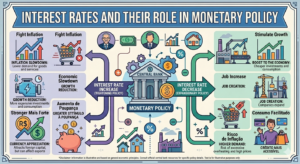Navigating the world of personal finance can feel overwhelming, especially when you’re just starting out. You’re bombarded with conflicting advice, complex jargon, and the pressure to make the “right” decisions. But here’s the secret: financial success isn’t about getting rich quick or making a series of perfect choices. It’s about building a solid foundation of smart money habits that will serve you for a lifetime.
This guide is your blueprint for taking control of your financial future. We’ll break down the core principles of smart money management into simple, actionable steps. Whether you’re a recent graduate, a young professional, or simply looking to get your finances in order, these habits will empower you to save more, spend smarter, and build lasting wealth.
1. The Foundation: Understanding Your Financial Flow
Before you can build, you need to know what you’re working with. The single most important habit you can develop is gaining a clear understanding of your income and expenses. This isn’t about tracking every single penny you spend, but rather about creating a holistic picture of your financial life.
A. The Budget: Your Financial Roadmap
The word “budget” often conjures images of restriction and deprivation. But a good budget is actually a tool for freedom. It allows you to direct your money toward the things that matter most to you, whether that’s saving for a down payment, traveling, or paying off debt.
A simple and effective method is the 50/30/20 rule. It breaks down your after-tax income into three categories:
- 50% for Needs: This covers essential expenses like housing, utilities, groceries, and transportation.
- 30% for Wants: This is for discretionary spending—things you enjoy but don’t need to survive, such as dining out, hobbies, and entertainment.
- 20% for Savings & Debt Repayment: This is the most crucial part. This portion is dedicated to building an emergency fund, saving for long-term goals, and paying down high-interest debt.
Start by tracking your spending for a month to see where your money is actually going. You might be surprised. Then, adjust your spending to align with the 50/30/20 framework.
2. The Habit of Paying Yourself First
This is a game-changer. Most people operate on a “spend first, save what’s left” model. The problem is, there’s often nothing left. The habit of paying yourself first flips this on its head.
When you get paid, the very first thing you do is transfer money from your checking account to your savings and investment accounts. This makes saving a non-negotiable expense, just like your rent or mortgage.
A. Automate, Automate, Automate
The easiest way to “pay yourself first” is to make it automatic. Set up an automatic transfer from your checking account to your savings account to occur every payday. For example, if you aim to save 20% of your income, set up a transfer for that exact amount. When the money is out of sight, it’s out of mind and less likely to be spent.
3. The Shield: Building an Emergency Fund
Life is unpredictable. A sudden job loss, a medical emergency, or a major car repair can derail your finances and force you into high-interest debt. An emergency fund is your financial shield—a pool of money saved specifically to cover these unexpected expenses.
Your goal should be to save enough to cover 3 to 6 months of essential living expenses. This is your 50% “Needs” category from your budget. Start small, even if it’s just $25 a week, and build up. Keep this money in a separate, easily accessible, high-yield savings account where it can grow while remaining liquid.
4. Conquering Debt: Prioritizing Your Financial Health
High-interest debt, like credit card balances, can be a major roadblock to building wealth. The interest payments eat into your income, making it difficult to save or invest. Conquering this debt is a critical smart money habit.
A. The Avalanche vs. The Snowball
There are two popular strategies for paying off debt:
- The Debt Avalanche Method: This method prioritizes paying off the debt with the highest interest rate first. While you make minimum payments on all other debts, you throw all extra money at the highest-interest one. This is mathematically the most efficient way to save on interest.
- The Debt Snowball Method: This method focuses on paying off the debt with the smallest balance first. Once that debt is paid off, you take the money you were paying on it and add it to the payment for the next smallest debt. This method provides psychological wins and momentum, which can be highly motivating for beginners.
Choose the method that works best for your personality and stick with it.
5. Your Future Self: The Habit of Investing
Saving money is crucial, but it’s not enough. Inflation erodes the purchasing power of your cash over time. To truly build wealth, you need to put your money to work by investing.
Investing allows your money to grow through compound interest, a powerful force that Albert Einstein reportedly called the “eighth wonder of the world.” With compound interest, the money you invest earns returns, and those returns then earn their own returns, creating a snowball effect over time.
For beginners, the best approach is often to start with low-cost, diversified index funds or ETFs. These are managed funds that hold a wide range of stocks and bonds, providing instant diversification and lowering your risk. The goal isn’t to pick the next winning stock; it’s to participate in the long-term growth of the market as a whole.
- Start early: Time is your greatest asset in investing. The longer your money is invested, the more time it has to compound.
- Be consistent: Don’t try to time the market. Instead, invest a fixed amount regularly, a strategy known as dollar-cost averaging. This helps smooth out the ups and downs of the market.
- Take advantage of retirement accounts: Utilize tax-advantaged accounts like a 401(k) or IRA. If your employer offers a 401(k) match, contribute at least enough to get the full match—it’s free money.
Final Thoughts: From Habits to a Lifestyle
Building a strong financial foundation isn’t about complicated spreadsheets or risky investments. It’s about developing simple, powerful habits:
- Understanding your financial flow with a budget.
- Paying yourself first by automating your savings.
- Shielding yourself with an emergency fund.
- Conquering debt to free up your cash flow.
- Investing consistently to build long-term wealth.
These are not just habits; they are a lifestyle. By adopting them, you’re not just managing money—you’re building confidence, reducing stress, and setting yourself on a clear path toward a more secure and prosperous future. Take the first step today. Your future self will thank you.







